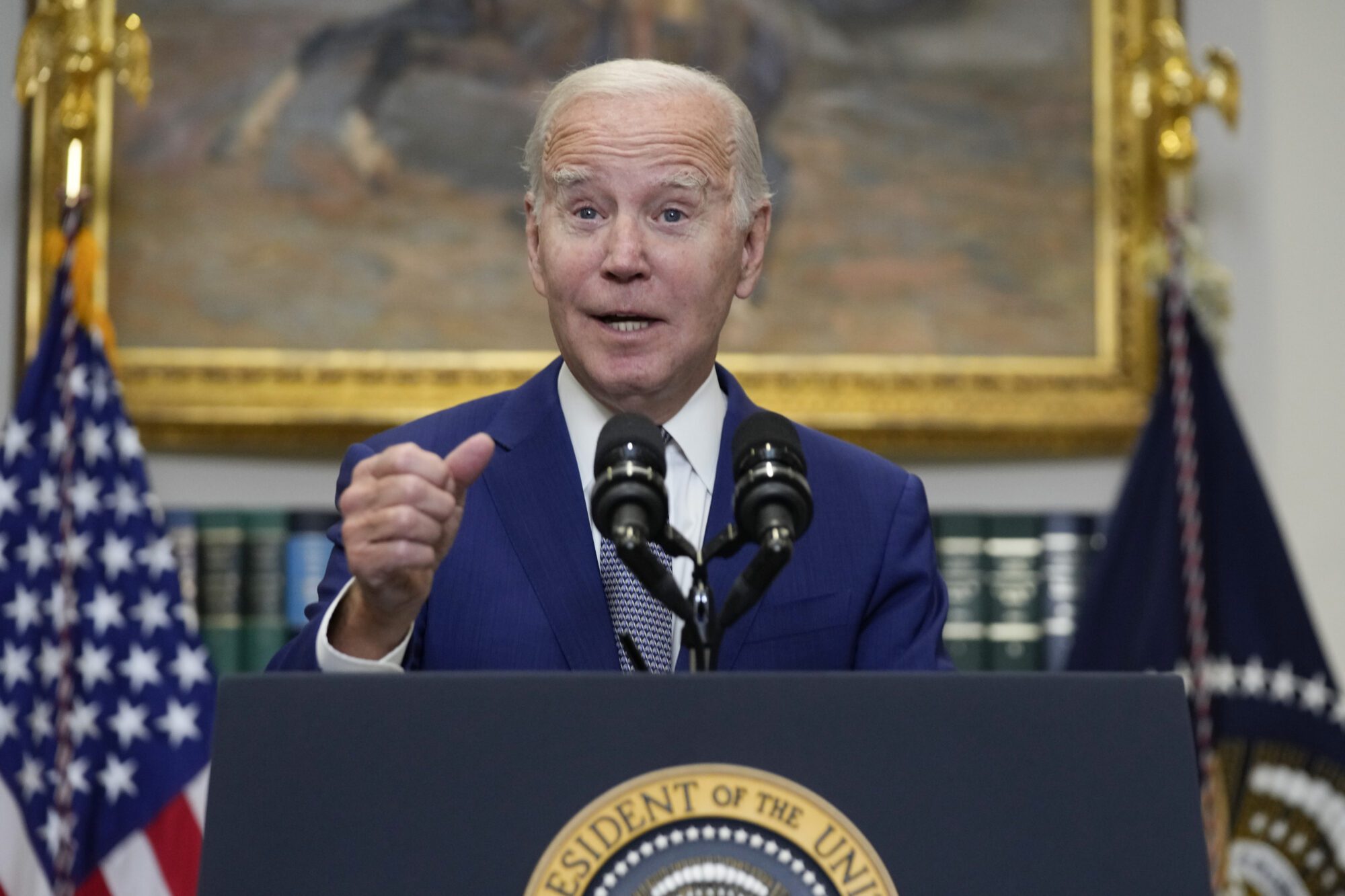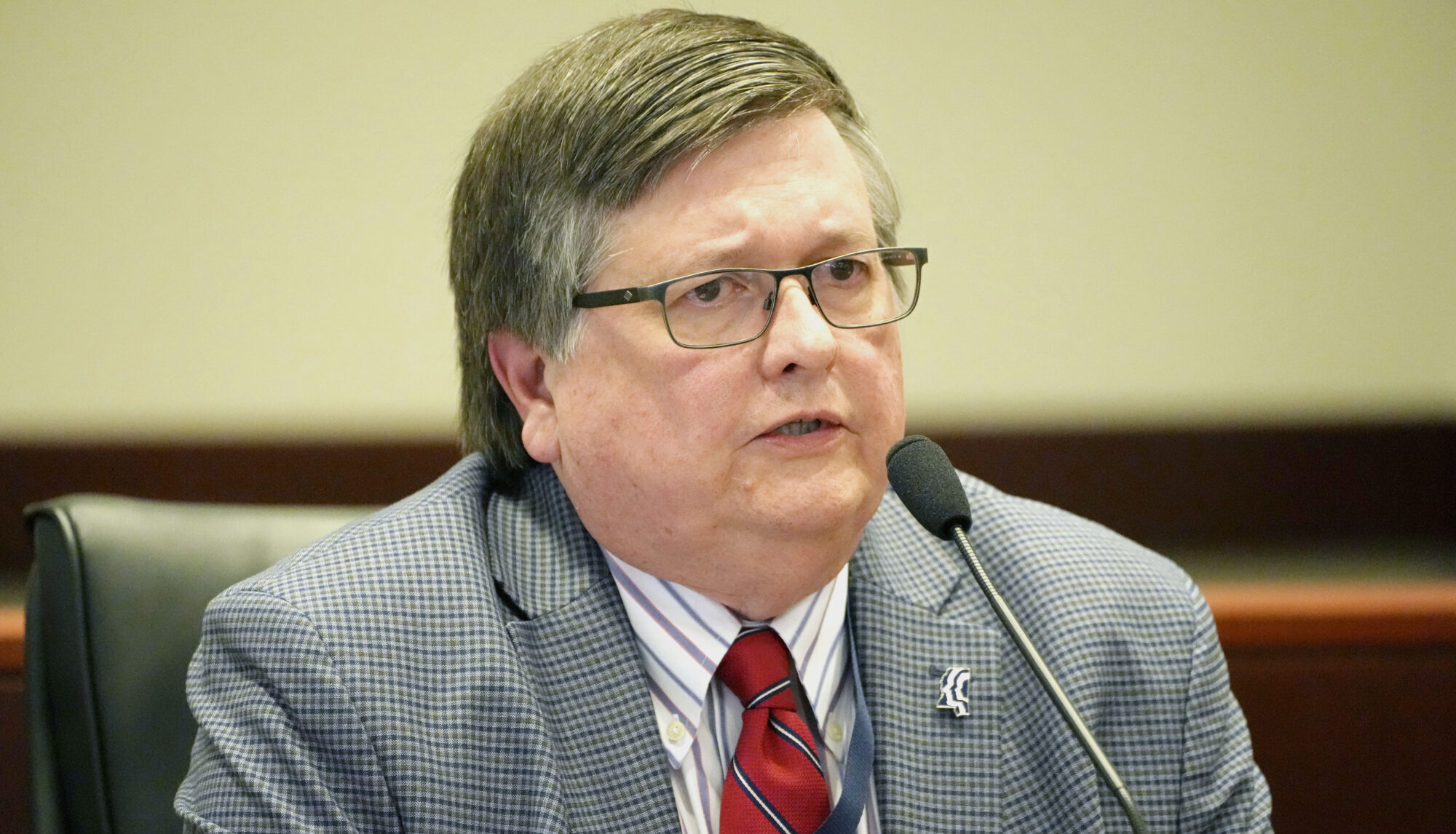RELEASE
Wicker Holds Press Briefing Following NAS Meridian Visit
JACKSON – U.S. Senator Roger Wicker, R-Miss., held a press briefing Saturday following his visit with Navy officials and instructor pilots at NAS Meridian to discuss safety issues with the T-45 training jets used at the base. The following is a transcript of that briefing:
Senator Wicker: Let me start off with a brief statement and then I’ll take questions.
We met with a number of instructor pilots today – some that chose to continue flying, others that felt it was the better part of discretion not to fly with the safety concerns. And then we talked with the three-star admiral, Admiral Shoemaker, who has been to all three flying training stations after this information arose. Let me say that, after talking with all three groups, I am encouraged that a serious problem has been acknowledged and that a different approach is being taken to arrive at a solution. From that standpoint, I think the events of the past few days have been helpful. The Senate and the Congress as a whole have been sending a message to the Navy that this problem needs to be looked at and solved for some time now.
But what brought this to a head and actually caused the current stoppage of flying is a spike in what they call Histotoxic hypoxia – which is a big word, but mainly it’s a different kind of breathing problem that these training pilots have not seen in the past – something that’s new over the past few weeks to two months. We are doing our best now to see if we can get to the bottom of that. What I was hearing from both groups of instructor pilots – the ones who felt that the stoppage was necessary and the ones who were willing to go ahead with flying – is that now a different solution has been undertaken. A couple of these aircrafts – one from here, one from another station – have been flown to Patuxent River, where they will be completely taken apart.
A kind of analysis is going to be done that has not been done before. And so, I think we are in a position where there’s every hope that we will be able to get to the bottom of the problem. It’s like having an illness. The diagnosis doctor, the doctor who gives you the correct diagnosis, is the one that really gets to the problem. Once the problem is identified, the manufacturers and the engineers will know how to deal with it. But I think we are much closer today, because of what has happened in the past few days, to getting the correct diagnosis.
Let me say this also: There was general praise for the local station leadership here. The Commodore and the skippers get universal praise from these professional training pilots. I want to give my acknowledgement they are well representing the taxpayers, the American citizens; we are all represented at the Naval Air Station with the leadership here. I also have to give my thanks and acknowledgment to the three-star Admiral Shoemaker for coming and devoting as much time to this problem. This is now the top priority of naval aviation – to get to the bottom of this, to solve this. We are being told that in this respect money is no object and that the necessary resources are going to be devoted to solving this problem. With that, I’ll try to take a question or two, if I haven’t already gone on too long.
Question: I’ll start first. Has at least a step or a contingent plan been created, or are you all just still trying to get ideas for it now?
Senator Wicker: There will be no training flights for at least the next five days and possibly longer. The three-star has said it could be one to two weeks more, but at least five days of a stoppage in the training flights, and this is going to allow a lot of comprehensive testing of the aircraft to see if we can get to the problem.
So, from that standpoint, yes, there is a different plan and a different solution to finding out exactly what the problem is. I am getting the impression that also there is more acknowledgement coming from the various agencies in the Navy to acknowledge that, yes, we now understand this is a toxic oxygen problem that we haven’t had before and it needs to be addressed in a different way from the previous problems of just a lack of oxygen.
Question: Are you satisfied that the Navy is doing all that it can to solve this problem? Is it kind of a bigger issue than you had originally thought it was?
Senator Wicker: It is a bigger issue and a different issue than I think the Navy leadership thought it was, and there is nothing like getting here on the ground and talking to reasonable people that do this every day to enhance your understanding. I think we are on the road to understanding the problem that will get us a lot closer to a solution. I am encouraged of what I have heard today. I can tell you, I come here with the encouragement and blessing of the chairman of our committee, Senator John McCain, who actually trained to be a pilot here at this base. He has been vitally interested in this problem, not just with the training jets but also system-wide, and we are going to take this message back to him. There is nothing like congressional oversight to ask the right questions of our civilian leadership of the Navy and also of our uniformed leadership of the Navy. That level of interest has now been heightened because of what we know, and the questions that we will be asking will be more informed and intensified.
Question: How important to these instructors do you think it was to have their country leaders to come to speak with today about these issues?
Senator Wicker: I think they appreciate the attention that the Congress is giving to this issue, and these are from people who were not able to get down here like I’ve been able to, but also the leadership of the House and Senate committees. I think there is an awareness now that we are more focused in on this, as we should be, but also there is much appreciation from the Navy leadership.
Question: What was the vibe of the instructors as you went and talked to them?
Senator Wicker: The two groups, the ones that chose not to fly for safety problems and the ones that are willing to go ahead, were really more unified than you might think. There was an acknowledgement that, yes, there is a problem, and it’s a different problem than we’ve had before, and it needs to be addressed. Also, that this station’s leadership has just been superb, and there are no complaints in that regard. I think there was a difference in their reaction to the acknowledged problem, but the facts that we got from both teams were very much the same, and it was very helpful.
Question: Are you concerned about the delay in training and any harmful effects down the road to national security? We have this situation in Syria, as you know. How will this affect that? And if Boeing has a solution for this, this might be a technical question … but is this going to be a costly phase?
Senator Wicker: I am concerned about the delay in training, and I think both groups of instructor pilots are concerned. I think the three-star Admiral Shoemaker is concerned about that, and so we have to balance off the safety aspect of this with the way it affects readiness. We are churning out the best pilots in the world, and frankly the best pilots in the history of the United States Navy, and we are doing that because we need them. So, yes, we need to get back to flying, and I think there’s been an acknowledgement that in some form the flights can begin sooner rather than later, maybe without the instructors wearing the masks at all times. There are certain levels of altitude that can be done. I have learned more than I’ve learned in a long time about the various aspects of pilot training. There is a concern, and we need to get them back in line to train, and they need to do so in a safe manner.
4/11/17






